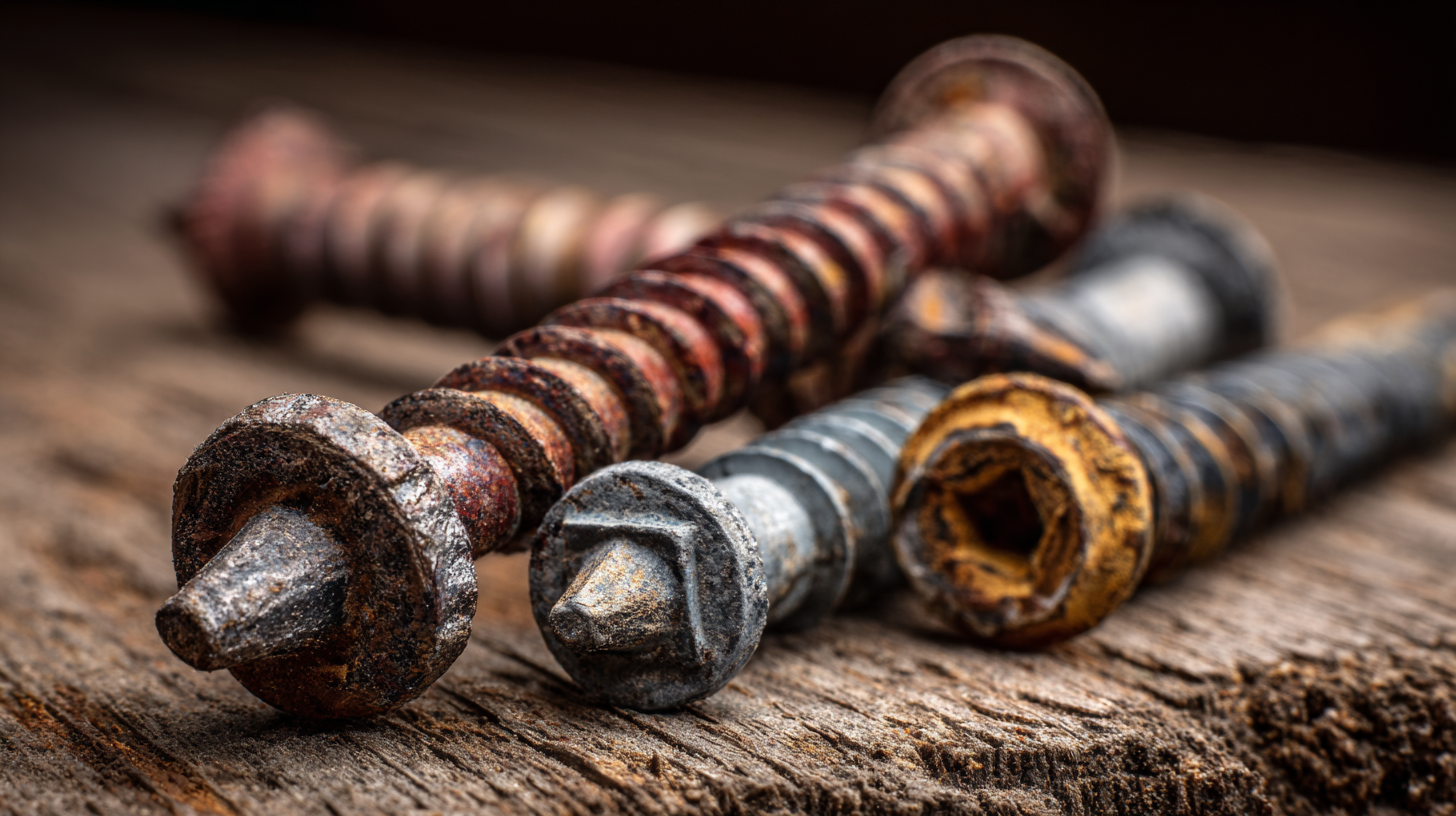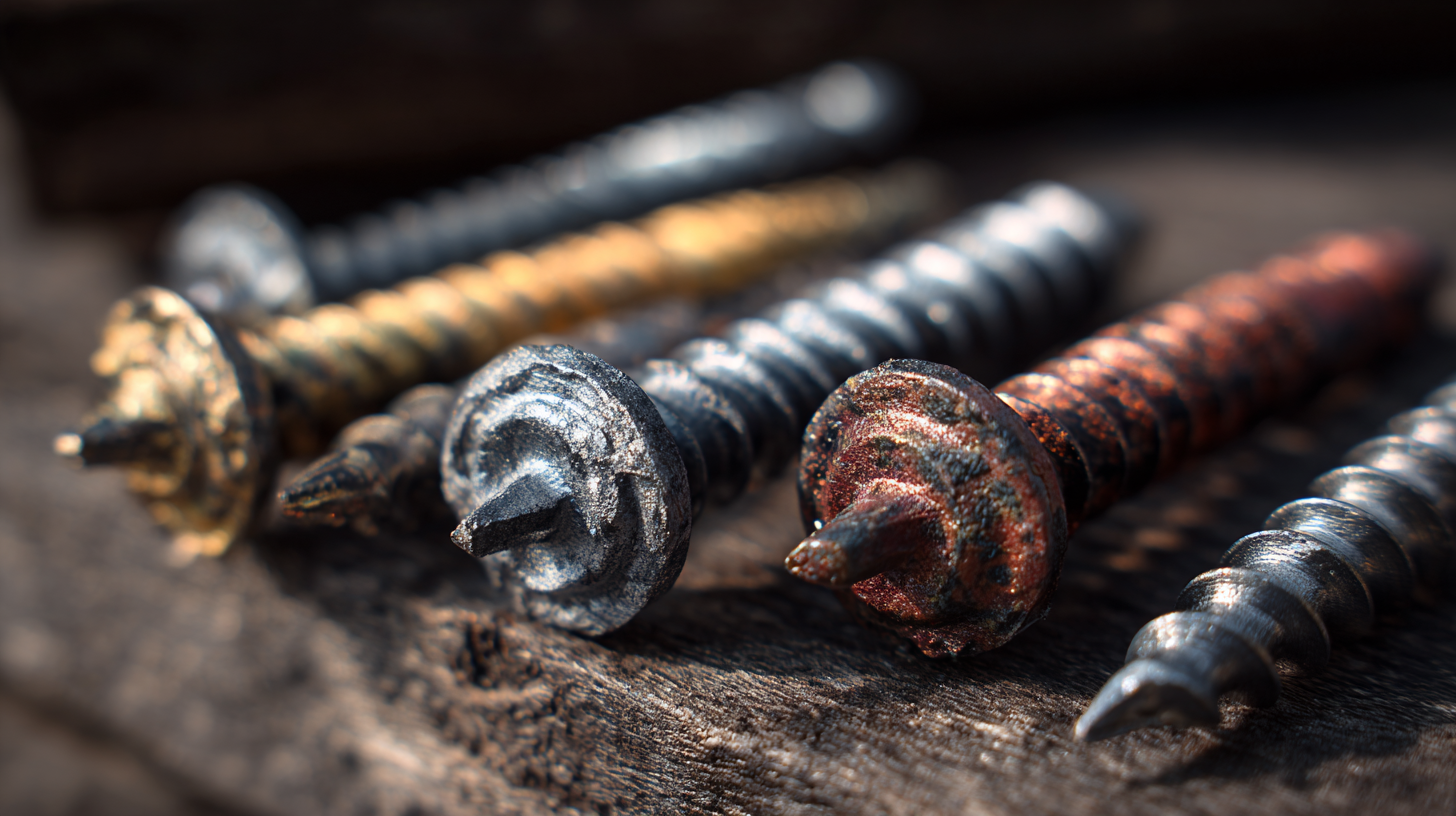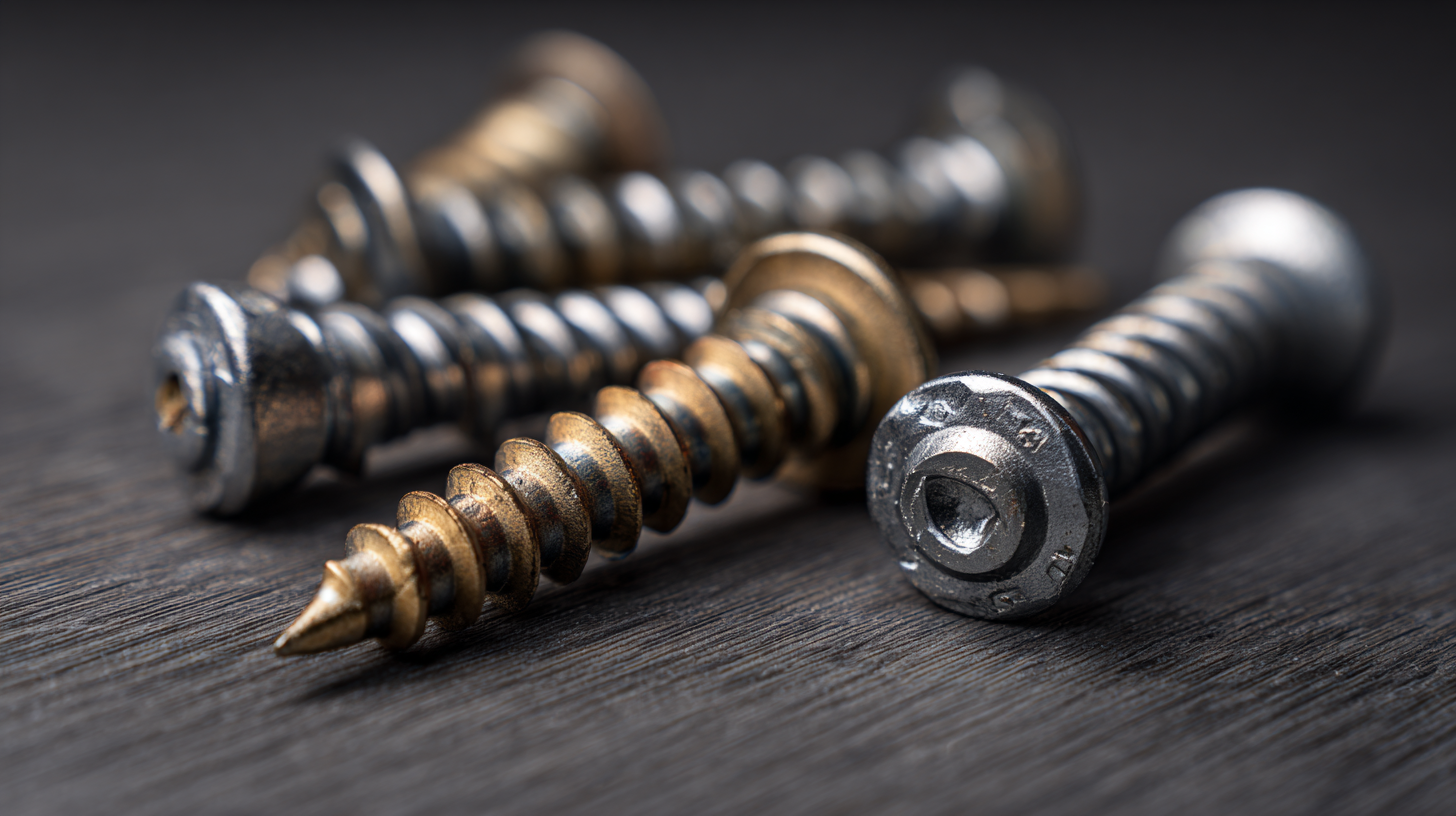
Maximize Value with Optimal After Sales Service and Maintenance Tips for Best Self-Drilling Screws
In the world of construction and DIY projects, the choice of fasteners plays a pivotal role in ensuring durability and efficiency. Self-Drilling Screws, with their unique design that allows for easy penetration into various materials, have become a go-to solution for both professionals and enthusiasts alike. However, the value of these screws is not solely determined by their quality or efficiency during installation; it extends to the after-sales service and maintenance practices that accompany them. By maximizing value through optimal after-sales support, users can enhance the longevity and performance of Self-Drilling Screws, ensuring they perform at their best over time.

In this blog, we will explore practical maintenance tips, the importance of proper handling, and how top Chinese manufacturers build global trust through superior service. Join us as we delve into the art of maximizing your investment in Self-Drilling Screws, leveraging optimal service practices to achieve exceptional results.
Essential After Sales Service Strategies for Self-Drilling Screws
After-sales service is crucial for enhancing customer satisfaction and ensuring the longevity of products like self-drilling screws. According to a report by the National Association of Manufacturers, 76% of consumers are more likely to recommend a brand if they receive effective after-sales support. This indicates the growing importance of implementing robust strategies to address customer inquiries and provide technical assistance post-purchase.

To maximize value, manufacturers should establish a dedicated customer support team that specializes in self-drilling screws. Providing comprehensive resources, such as installation guides and troubleshooting tips, can significantly reduce product return rates, which, as noted by the Industrial Fasteners Institute, can reach up to 30% in cases of insufficient customer guidance. Moreover, regular maintenance tips, such as proper storage methods and usage limitations, can prevent premature wear and tear, thereby enhancing the overall performance of these fasteners and increasing customer loyalty.
Top Maintenance Tips to Extend the Life of Your Self-Drilling Screws
Self-drilling screws are essential for many DIY projects, and maintaining them properly can significantly extend their lifespan. One of the top maintenance tips is to ensure that your screws are stored in a dry, cool environment. Moisture can lead to corrosion, which not only affects the screws' performance but can also complicate future projects. Keeping your screws organized and identifiable will help you select the right type for your needs and avoid wasting time searching through a jumbled collection.
Another crucial tip is to regularly inspect the screws for any signs of wear or damage. During usage, if you notice that the screw is not sinking in smoothly, it might be dull or damaged. In such cases, replacing the screws promptly will ensure the integrity of your work. Furthermore, using the correct drill bits for self-drilling screws will make installation much easier and prevent unnecessary wear on both the screws and the tools. Having the right tools at hand, as highlighted in recent discussions among experts, can truly make a difference in the efficiency of your repairs and enhancements.
Maximize Value with Optimal After Sales Service and Maintenance Tips for Best Self-Drilling Screws
Maximizing Efficiency: Best Practices for Using Self-Drilling Screws
When it comes to maximizing efficiency in construction and woodworking, employing the right practices for self-drilling screws can significantly enhance productivity. According to a report by the Fastener Type & Usage Study conducted by the Industrial Fasteners Institute, up to 70% of assembly time can be reduced by choosing appropriate fastening solutions, like self-drilling screws, which eliminate the need for pre-drilling. This simplification allows workers to focus on other critical aspects of their projects, ultimately improving the overall project timeline.
In addition, utilizing self-drilling screws correctly involves ensuring the right type and size for the materials at hand. A study from the National Screw and Fastener Association indicates that using screws with matching specifications can enhance tensile strength and reduce the risk of fatigue failure by nearly 30%. For optimal results, consider incorporating torque wrenches during installation to achieve precise fastening, as improper torque can lead to stripped heads and diminished holding power. By adhering to these best practices, you can enhance both the efficiency and durability of your projects, demonstrating the value of strategic fastener use in construction and repair applications.
Maximize Value with Optimal After Sales Service and Maintenance Tips for Best Self-Drilling Screws
| Aspect | Tip | Benefit |
|---|---|---|
| Selection | Choose the correct screw type for your material | Enhances grip and reduces risk of stripping |
| Pilot Holes | Drill pilot holes when necessary | Prevents splitting and ensures smooth insertion |
| Torque Settings | Adjust power tool torque settings | Avoids over-driving and damaging the screw |
| Maintenance | Regularly check and replace worn-out screws | Ensures structural integrity and safety |
| Storage | Store screws in a dry, cool place | Prevents rust and prolongs lifespan |
| Tools | Use the right tools for installation | Enhances precision and efficiency |
Common Issues and Solutions in After Sales Support for Fasteners
In the fasteners industry, effective after-sales support is critical for enhancing customer satisfaction and prolonging the lifecycle of products, particularly in self-drilling screws. According to a recent industry report by Freedonia Group, the demand for industrial fasteners, including self-drilling screws, is projected to reach 16.3 billion USD by 2025. However, common issues, such as incorrect installation or improper selection of screws, often arise post-purchase, leading to dissatisfaction and potential costly repairs.
To address these concerns, providing comprehensive after-sales service is essential. This includes offering detailed installation guides and troubleshooting assistance to help customers resolve installation-related issues. For example, data from the Fastener Standards Institute highlights that improper installation can lead to a 30% increase in failure rates for fasteners. Consequently, manufacturers should prioritize developing easy-to-understand resources and accessible customer service channels to tackle these challenges effectively. Furthermore, regular maintenance tips, such as proper storage of screws and periodic inspections, can significantly reduce common failures, thereby increasing customer trust and loyalty in a competitive market.
How to Train Your Team for Optimal Self-Drilling Screw Maintenance
Effective maintenance of self-drilling screws is pivotal for maximizing their performance and longevity. Training your team is essential; studies indicate that well-trained workers are 60% more efficient in handling maintenance tasks. Incorporating hands-on training sessions focused on the specific requirements of self-drilling screws, such as torque specifications and material compatibility, can significantly improve service outcomes. For instance, industry reports reveal that improper installation and maintenance can lead to up to a 30% increase in failure rates of fasteners, escalating project costs and delaying timelines.
Additionally, staying updated with the latest product innovations is crucial in ensuring optimal performance. The recent introduction of bi-metal self-drilling screws highlights advancements in materials that enhance durability and corrosion resistance. With these new products, training should include information on selecting the right screw type for various applications, including the specific advantages of these advancements. By fostering a culture of continuous learning and maintenance training, companies can ensure that their teams are well-equipped to manage and utilize these tools effectively, leading to improved project reliability and cost savings.

